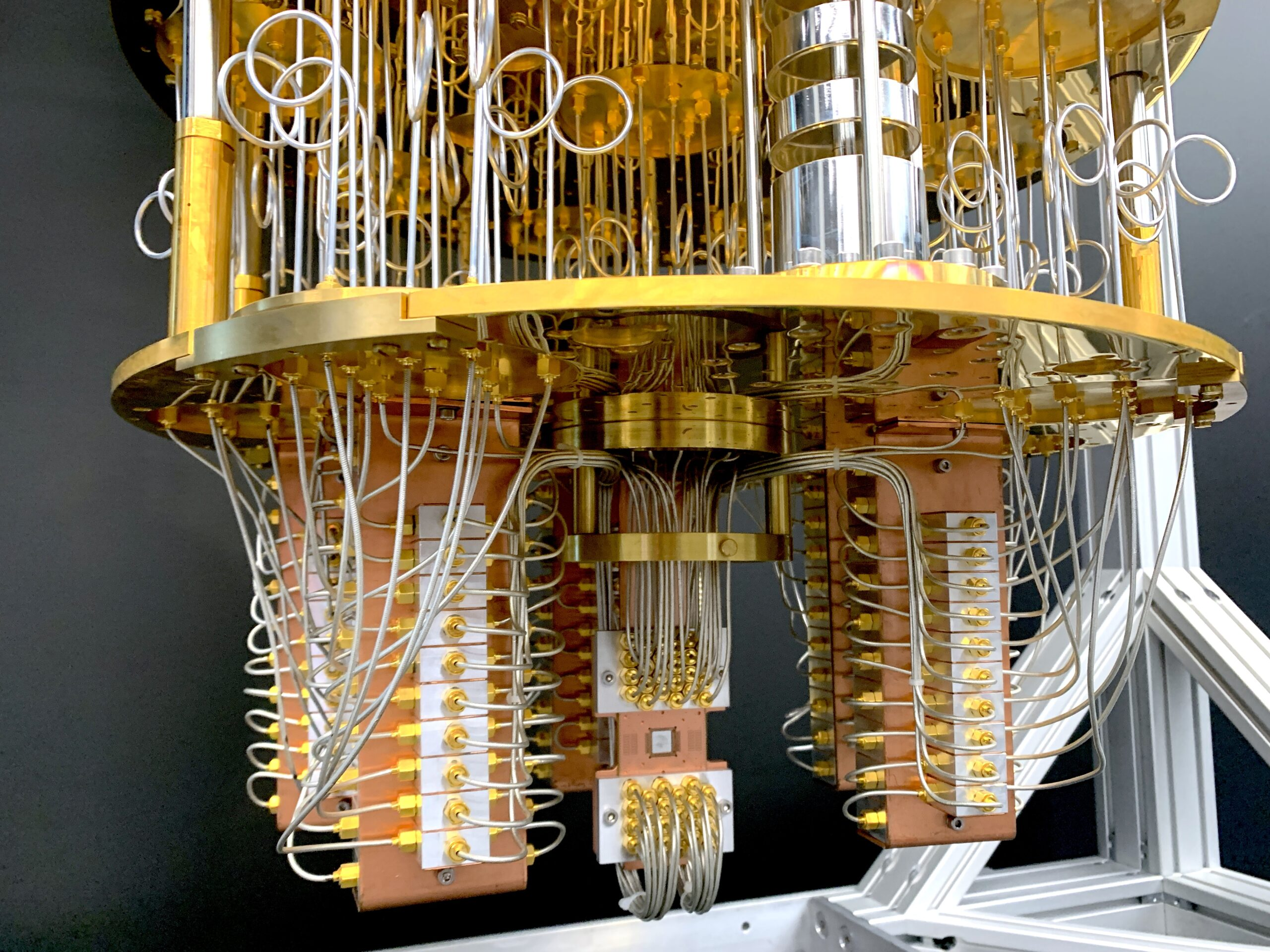Quantum computing stands at the forefront of technological innovation, harnessing the principles of quantum mechanics to revolutionize data processing. By leveraging the unique properties of qubits, the fundamental units of quantum information, researchers are carving pathways toward unprecedented computational speed and efficiency. Recent advancements in trapping molecules for quantum operations highlight the incredible potential of molecular quantum computers over traditional systems. This breakthrough paves the way for utilizing complex entangled states in various applications, from medicine to finance. With the ability to perform quantum operations previously deemed impossible, quantum computing is set to redefine our understanding of information technology.
In the rapidly evolving landscape of computational technology, the term ‘quantum information processing’ has gained notable prominence, representing a crucial shift from classical computing paradigms. By employing molecular systems as the basis for these advanced computing frameworks, scientists aim to unlock new levels of efficiency and speed. Utilizing ‘quantum bits’ or ‘qubits,’ which can exist in superpositions, researchers explore the implementation of quantum gates that manipulate these states to achieve complex operations. The emergence of entangled quantum states not only amplifies computational power but also enables groundbreaking developments across various scientific and industrial sectors. As the exploration of these sophisticated systems continues, the prospects for revolutionary advancements in technology remain boundless.
Understanding Quantum Computing and Its Significance
Quantum computing represents a revolutionary shift in our approach to computation by leveraging the principles of quantum mechanics. Unlike classical computers, which rely on bits as the smallest unit of data, quantum computers use qubits, which can exist in multiple states simultaneously due to the phenomenon of superposition. This capability enables quantum computers to perform complex calculations at unprecedented speeds, unlocking the potential to solve problems that are currently infeasible for conventional machines.
The implications of quantum computing are vast and encompass numerous fields, including cryptography, materials science, and artificial intelligence. As we explore the depths of quantum mechanics, researchers have started to uncover novel methods to create powerful quantum systems that outperform traditional computing models. This underscores the importance of continued research and development in quantum technologies, particularly as we venture into creating molecular quantum computers that harness the intricate properties of molecules.
The Role of Qubits in Quantum Operations
At the heart of quantum computing are qubits, the fundamental units that store and process information. Qubits can represent both 0 and 1 simultaneously, thanks to quantum superposition, allowing for a higher degree of parallelism in computing tasks. When combined with quantum entanglement—where qubits become interdependent in their states—quantum computers can execute multiple operations concurrently, leading to significant speedups in computation.
One primary focus in advancing quantum computing research is the development of reliable qubit systems. Trapped ions, superconducting circuits, and now molecules exhibit promise as qubit candidates. The Harvard research team’s groundbreaking achievement in trapping sodium-cesium molecules demonstrates the potential to utilize these intricate structures in quantum operations, paving the way for future molecular quantum computers that could harness this robustness for enhanced computational capabilities.
Exploring Molecular Quantum Computers
The concept of molecular quantum computers introduces the exciting possibility of utilizing complex molecular structures for computational tasks. Unlike simpler systems that utilize ions or simple atomic arrangements, molecular quantum computers can exploit the rich variety of quantum states that molecules can exhibit, such as their rotational and vibrational states. This complexity could lead to greater processing power and more nuanced approaches to problem-solving.
However, harnessing molecules for quantum operations has posed challenges due to their inherent instability and susceptibility to external influences. The Harvard team’s success in stabilizing molecules through optical tweezers in ultra-cold environments represents a significant advance, demonstrating that it is possible to manage the complexities of molecular systems effectively. This breakthrough could open new avenues in quantum research, allowing scientists to explore the computational capabilities of molecular structures like never before.
Achievements in Quantum Operations with Entangled States
Entangled states form a central feature of quantum computing, where the state of one qubit can depend on the state of another, no matter the distance separating them. This property is pivotal for quantum operations, enabling tasks such as quantum teleportation and superdense coding, which are unattainable with classical systems. The successful entanglement of sodium-cesium molecules by the Harvard research team, with impressive fidelity, showcases the potential for developing sophisticated quantum gates necessary for a functioning molecular quantum computer.
By utilizing the recently introduced iSWAP gate, which manipulates qubit states and facilitates entanglement, researchers can pave the way for executing complex quantum algorithms. Such advancements highlight not only the technical achievements but also the broader implications for quantum communication and secure protocols in networking, thereby reinforcing the integral role of entangled states in advancing quantum operations.
Challenges in Trapping Molecules for Quantum Computing
Despite the promising potential of molecular systems for quantum computing, several challenges remain. Historically, the instability of complex molecules posed a significant barrier to their use in quantum operations, leading researchers to focus on simpler systems like trapped ions. The intricate internal structures of molecules can lead to unpredictable behaviors that disrupt coherence, which is critical for maintaining the delicate quantum states necessary for reliable computation.
The innovative approach adopted by the Harvard team, which involved trapping molecules in ultra-cold temperatures while utilizing optical tweezers, represents a critical advancement in overcoming these challenges. Such techniques help minimize the movement of molecules, thereby enhancing their stability and allowing for precise control during quantum operations. As researchers continue to refine these methods, the possibility of achieving reliable molecular quantum computers will become increasingly feasible.
The Future of Quantum Computing: Opportunities and Innovations
The advancement of quantum computing and the successful entrapment of molecules herald the beginning of a new era in computational technology. The unique properties of molecules, including their diverse configurations and interactions, present opportunities that could revolutionize various sectors, from pharmaceuticals to aerospace. By tapping into the capabilities of molecular quantum computing, researchers can explore breakthrough technologies that were previously considered impossible.
As the field progresses, innovation will drive the future of quantum computing. The combination of theoretical advancements in quantum mechanics and practical applications through constructed molecular systems could lead to unprecedented discoveries. With ongoing support from institutions and researchers passionate about pushing the boundaries of science, the path toward realizing the full potential of quantum computing appears promising.
Harnessing Quantum Mechanics for Advanced Technologies
The successful integration of quantum mechanics into practical applications signifies a remarkable evolution in technology. By understanding quantum properties, such as superposition and entanglement, scientists and engineers are harnessing these principles to design systems capable of performing tasks well beyond the reach of classical computing. This approach not only facilitates advancements in quantum computing but also opens doors to innovations in data security, cryptography, and complex simulations.
Quantum mechanics provides the foundational principles that allow for the manipulation of information at an unparalleled scale. As researchers continue to explore these principles in the context of molecular systems, the potential for creating efficient and robust technologies will only expand. This paradigm shift is already being felt in multiple sectors, where the promise of quantum computing is set to enhance data processing capabilities, improve systems optimization, and revolutionize industries reliant on complex computational simulations.
Quantum Operations: The Building Blocks of Quantum Logic Gates
Quantum operations, characterized by their reversible nature and precision, are foundational to the construction of quantum logic gates, which are analogous to classical logic gates yet operate on qubits. The unique ability of quantum gates to manipulate qubits within superpositions enables quantum computers to execute complex calculations with extraordinary efficiency, ultimately surpassing the limitations of traditional binary systems. This distinction is key as quantum technologies move toward realizing full-fledged quantum computing capabilities that leverage entangled states and other quantum phenomena.
In the research conducted by the Harvard team, the development of the iSWAP gate exemplifies how specific quantum operations can be devised to establish correlations between qubits effectively. Such logic gates play a participation role in constructing larger quantum circuits, paving the way for more intricate quantum algorithms that can unlock new fronts in computing prowess. The continuous evolution of quantum operations highlights the burgeoning field of quantum computing and its potential impact across a variety of disciplines.
The Impact of Quantum Technology on Various Industries
Quantum technology is poised to have a transformative effect on numerous industries, from healthcare to finance. In drug discovery, for instance, the ability to simulate molecular interactions at a quantum level can lead to the identification of effective treatments in a fraction of the time currently required. As quantum computing becomes more accessible, researchers will find it easier to model complex biological systems, potentially speeding up the entire development process for pharmaceuticals.
In the realm of finance, quantum algorithms have the potential to enhance optimization and risk assessment, allowing for more efficient portfolio management and trading strategies. The exponential speed and processing capabilities afforded by quantum systems can lead to significant improvements in decision-making processes. As quantum technologies evolve, the synergy between scientific advancements and industry applications will shape a future rich with opportunities driven by equality and efficiency.
Bridging the Gap Between Quantum Theory and Practical Application
The journey from theoretical quantum mechanics to practical quantum computing technology has seen exponential growth over the past decades. Bridging this gap has involved significant research and development efforts that bring together physicists, engineers, and computer scientists to collaborate on developing real-world applications of quantum principles. With the recent successes in trapping molecules for quantum operations, we are witnessing a convergence of theory and application that could accelerate innovation dramatically.
As we continue to unlock the secrets of quantum mechanics, the possibilities remain vast. Researchers are unveiling practical applications that make quantum technology tangible for industry purposes, evident from advancements in molecular quantum computers. The growing interplay between theoretical research and its application into user-friendly technologies marks a new frontier for quantum computing, signifying that the profound insights gained from quantum theory can translate into groundbreaking solutions that reshape our technological landscape.
Frequently Asked Questions
What are the key advantages of using molecules in quantum computing compared to traditional qubits?
Using molecules as qubits in quantum computing allows researchers to exploit their complex internal structures, leading to potentially more robust quantum operations. Unlike traditional qubits such as trapped ions or superconducting circuits, which are simpler, molecules can perform intricate quantum operations and may help in achieving higher accuracy and stability in quantum states.
How do trapped molecules perform quantum operations in a molecular quantum computer?
Trapped molecules conduct quantum operations by utilizing their electric dipole-dipole interactions in a controlled environment. For instance, the Harvard team used optical tweezers to stably trap sodium-cesium (NaCs) molecules at ultra-cold temperatures, enabling them to manipulate and entangle the molecules into a two-qubit Bell state. This innovative approach forms the basis of future molecular quantum computers.
What role do entangled states play in quantum computing?
Entangled states are pivotal in quantum computing as they enable qubits to be correlated regardless of distance, allowing for complex quantum operations. These states enhance the computational power of quantum computers, facilitating tasks such as parallel processing and maintaining coherence, which are essential for reliable quantum operations.
Why has it been challenging to use molecular systems for quantum computing?
Molecular systems have historically been difficult to use for quantum computing due to their intricate internal structures, which can lead to instability and unpredictable behavior. This unpredictability interferes with coherence, a crucial element for reliable quantum operations. Recent advancements in trapping molecules at ultra-cold temperatures have helped mitigate these challenges.
What is the significance of the iSWAP gate in molecular quantum computing?
The iSWAP gate is crucial in molecular quantum computing as it interchanges the states of two qubits and applies a phase shift, essential for generating entanglement. This capability allows for the correlation of qubits and is fundamental in constructing more complex quantum circuits that can execute advanced quantum operations.
How did the Harvard team achieve success in trapping molecules for quantum operations?
The Harvard team achieved success by employing optical tweezers to trap sodium-cesium (NaCs) molecules in a stable, ultra-cold environment. By controlling the interactions between these molecules, they successfully performed quantum operations and created a two-qubit Bell state with high fidelity, marking a significant milestone in the development of molecular quantum computers.
What future possibilities arise from using molecular quantum computers?
The use of molecular quantum computers opens up numerous possibilities, including enhanced computational speeds and capabilities in diverse fields such as medicine, finance, and science. The complex nature of molecular structures may lead to new quantum algorithms and processes, broadening the horizons of quantum computing beyond current limitations.
| Key Points | Details |
|---|---|
| Harvard Team Achievement | Successfully trapped molecules for quantum operations, marking a first in the field. |
| Use of Ultra-Cold Polar Molecules | Polar molecules were employed as qubits, enhancing the potential of quantum computing. |
| Development of iSWAP Gate | The team created a key quantum circuit that establishes entanglement necessary for quantum operations. |
| Molecular Stability Challenges | Molecules were historically seen as too unstable for quantum computing, but trapping them in ultra-cold environments mitigated these issues. |
| Future of Quantum Computing | This breakthrough opens up opportunities for constructing reliable molecular quantum computers. |
Summary
Quantum computing represents a transformative approach to computation, leveraging principles of quantum mechanics to achieve unprecedented speeds. The groundbreaking work by Kang-Kuen Ni and his team at Harvard in trapping molecules for quantum operations marks a significant milestone in the realization of molecular quantum computers. By utilizing ultra-cold polar molecules as qubits and successfully developing fundamental quantum gates, this research lays the foundation for future advancements in quantum computing technology. Enhanced stability and precision open new avenues for exploration in this dynamic field.



